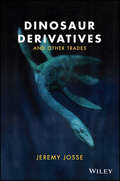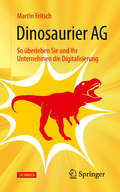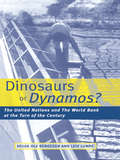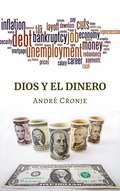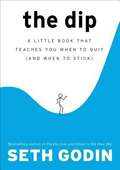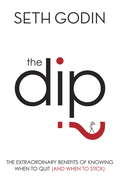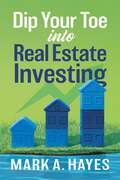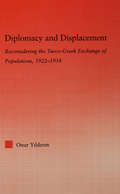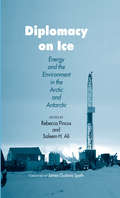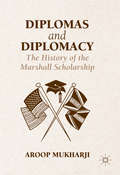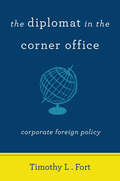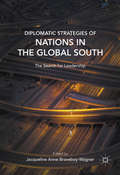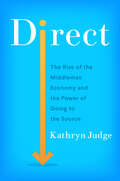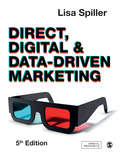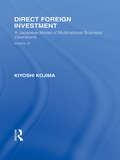- Table View
- List View
Dinesh Moorjani and Hatch Labs
by Allison M. Ciechanover Christopher Stanton Jeff Huizinga Shikhar GhoshThis case is about Tinder. It discusses different business models and ways of structuring the initial team. With a $6 million investment from IAC/Interactive in 2010, Dinesh Moorjani founded Hatch Labs to build mobile apps. His mission was to attract entrepreneurial talent to work on Lab projects which, after gaining traction, could be acquired by IAC or spun out as independent companies. To pitch talent to work at Hatch, Moorjani laid out a framework to compare the expected returns to founding an independent company versus joining an incubator. While Hatch provided lower levels of equity ownership in a single company, Moorjani argued that the complementary inputs provided by the Lab and the diversification from holding equity in the portfolio of Lab projects made the incubator structure attractive. After growing several projects from different teams, at the end of the case, Moorjani faces two critical choices: Should he support a B2B merchant services business or a dating app, Glow (a disguised name for Tinder). Second, should he go forward with a second Hatch Labs? Was the success of the first Hatch experiment replicable? The case can be supplemented with a startup valuation Exercise (#818-705), and a technical/background note on "Valuing Employee Equity at Early Stage Ventures" (#819-167).
Dinosaur Derivatives and Other Trades
by Jeremy JosseVenture deep into the heart of finance's weird and wonderful paradoxesDinosaur Derivatives and Other Trades is an entertaining and compelling tour de force highlighting the paradoxes inherent to the modern financial system. Presented as a series of striking case studies, this book explores certain enigmatic or philosophical puzzles in the finance industry; some of these puzzles may seem slightly absurd at first glance, but all are very relevant to the way finance is conducted in the real world. Each story highlights specific hypocrisies or moral dilemmas that lie at the heart of the system, guiding readers through the challenges of finance by way of innovative and memorable paradigms. Written in clear, accessible language, this book doesn't claim to offer original financial theory or philosophy as such, but instead deepens the reader's understanding of the system and stimulates independent consideration of the current state of affairs.The financial world, so often viewed as a rather dull place, is secretly alive with possibilities of strange and sometimes wonderful conundrums. There is the possibility, for instance, of a Manhattan auction house selling derivatives to buy swift-swimming predators known as Megalodons (thought to be extinct for millions of years). This book explores this and other curious propositions to point out the paradoxes of finance.Explore the meaning of "value" in different contextsLearn what the Old Testament can teach us about risk and uncertaintyExamine an alternative take on the 2007/2008 credit crisisConsider how the "financial innovation" trend impacts the industryTo truly understand something, it is necessary to crawl deep into the metaphorical underbelly and have a look around. Dinosaur Derivatives and Other Trades provides the itinerary, and the insightful discussion that stimulates curiosity.
Dinosaurier AG: So überleben Sie und Ihr Unternehmen die Digitalisierung
by Martin FritschVor dem Jahr 1990 geborene Leser riskieren das professionelle Aussterben. Sie mögen es noch nicht registriert haben, aber Ihre Tage sind gezählt. Sie haben das Internet nicht mit der Muttermilch aufgesogen, erinnern sich an ein Leben ohne Smartphones und kommunizieren ungelenk auf sozialen Netzwerken. Die Ankunft der Millennials zwingt Sie, sich selbst neu zu erfinden, falls Sie Ihren Platz an der Spitze der professionellen Nahrungskette behalten wollen. Selbst das wird Sie nicht retten, falls Sie für eine Dinosaurier AG arbeiten. Eine Bruchlandung Ihrer Firma führt zumeist auch zu einem Absturz Ihrer persönlichen Karriere. Dieses Buch erlaubt es Ihnen, festzustellen, ob Sie für einen kurz vor dem Aussterben stehenden Dinosaurier tätig sind und wie Sie Ihr Unternehmen aus der Kreidezeit in das dritte Jahrtausend katapultieren können. Arbeitgeber bevorzugen native Nutzer digitaler Technologien und eliminieren steinzeitliche Schlachtrösser wie Sie und mich lieber gestern als heute. Ihre persönlichen beruflichen Überlebenschancen hängen von Ihrem Dinosaurier-Quotienten ab; paradoxerweise je höher, desto besser. Der einfach durchführbare Dinosaurier-Quotienten-Test in diesem Buch ermöglicht Ihnen eine Analyse Ihrer Berufschancen und gibt Ihnen leicht umsetzbare Empfehlungen, diese zu verbessern. Ein weiterer Test misst den Millenniums-Quotienten Ihres Unternehmens, der Ihnen sagt, wie zukunftssicher Ihr Arbeitgeber ist.
Dinosaurs or Dynamos: The United Nations and the World Bank at the Turn of the Century
by Helge Ole Bergesen Leiv LundeExplores how much and what the World Bank and the United Nations can really be expected to achieve. The text begins with a detailed account of the evolution of the two organizations as multilateral development institutions and then focuses on the functions that the World Bank and the UN carry out, and the governing structures that underlie their activities. The authors then go on to question what need there is for these two multilateral institutions in the next century and which tasks they can undertake in promoting world development. Both the United Nations (UN) and the World Bank have repeatedly proclaimed their solemn ambitions to improve the lot of humankind. Dinosaurs or Dynamos? explores how much, and what, they can really be expected to do. Both have extended their functions far beyond their original mandates, while their decision-making structures have remained basically unaltered despite recent adaptations on the part of the World Bank. Such expansions have created serious strains on both organizations. The UN has ambitions to perform tasks, such as the search for 'good governance' and 'sustainable development', for which it is ill equipped. The World Bank has taken on normative functions - 'the premier development institution' - that are incompatible with its traditional structures. The authors ask, what need is there for these two multilateral development institutions in the next century? Which tasks in promoting world development can they undertake that others cannot? To whom are these institutions politically accountable, who sets their agendas and are they credible given financial constraints? Dinosaurs or Dynamos? is an essential guide for those working within the international community, non-governmental organizations, governments and students of development, economics, politics and international relations.
Dinr: My First Start-Up (A)
by Shikhar Ghosh Kristina MaslauskaiteIn May 2012, a young employee at Google's London office, Markus Berger, was thinking whether he should quit his job and go after his dream of becoming an entrepreneur. Berger's idea was to create Dinr, a company that would offer an upscale food ingredient delivery service in London. A customer would choose a recipe on Dinr's website and would receive all premeasured ingredients the same evening at their doorstep. Contrary to many existing similar companies, Dinr would not require a weekly subscription, but would operate one-off orders like other traditional food delivery services. Berger had already carried out an Alpha-test of the service and completed an in-depth survey of potential customers to explore the market. Most of the feedback was positive, which confirmed Berger's intuition about this market opportunity. Berger had found a more experienced co-founder with technical expertise, who was willing to join Dinr part-time and gathered 40,000 of initial capital. Yet, making the decision to leave his corporate job and become an entrepreneur was not easy: was Dinr a good business opportunity? Would it be attractive to outside investors? What were the risks involved?
Dinr: My First Start-Up (A)
by Kristina Maslauskaite Shikhar GhoshIn May 2012, a young employee at Google's London office, Markus Berger, was thinking whether he should quit his job and go after his dream of becoming an entrepreneur. Berger's idea was to create Dinr, a company that would offer an upscale food ingredient delivery service in London. A customer would choose a recipe on Dinr's website and would receive all premeasured ingredients the same evening at their doorstep. Contrary to many existing similar companies, Dinr would not require a weekly subscription, but would provide one-off orders like other traditional food delivery services. Berger had already carried out an alpha-test of the service and completed an in-depth survey of potential customers to explore the market. Most of the feedback was positive, which confirmed Berger's intuition about this market opportunity. Berger had found a more experienced co-founder with technical expertise who was willing to join Dinr part time and gathered 40,000 of initial capital. Yet, making the decision to leave his corporate job and become an entrepreneur was not easy: was Dinr a good business opportunity? Would it be attractive to outside investors? What were the risks involved?
Dios y el dinero: Bienaventurados los pobres
by André Cronje¿Alguna vez has pensado en lo que dice Dios acerca del dinero y la riqueza? Lee historias financieras reales y encontrarás aplicaciones prácticas a las leyes espirituales que Jesús enseñó sobre cómo prosperar y acumular tesoros para ti mismo en el cielo.
The Dip: A Little Book That Teaches You When to Quit (and When to Stick)
by Seth GodinA New York Times, USA Today, and Wall Street Journal bestseller In this iconic bestseller, popular business blogger and bestselling author Seth Godin proves that winners are really just the best quitters. Godin shows that winners quit fast, quit often, and quit without guilt—until they commit to beating the right Dip. Every new project (or job, or hobby, or company) starts out fun…then gets really hard, and not much fun at all. You might be in a Dip—a temporary setback that will get better if you keep pushing. But maybe it’s really a Cul-de-Sac—a total dead end. What really sets superstars apart is the ability to tell the two apart. Winners seek out the Dip. They realize that the bigger the barrier, the bigger the reward for getting past it. If you can beat the Dip to be the best, you’ll earn profits, glory, and long-term security. Whether you’re an intern or a CEO, this fun little book will help you figure out if you’re in a Dip that’s worthy of your time, effort, and talents. The old saying is wrong—winners do quit, and quitters do win.
The Dip: The extraordinary benefits of knowing when to quit (and when to stick)
by Seth GodinThis iconic bestseller from the bestselling author of All Marketers Are Liars proves that winners are just the best quitters and 'should be on every entrepreneur's book list' (Entrepreneur.com)Every new project (or career or relationship) starts out exciting and fun. Then it gets harder and less fun, until it hits a low point - really hard, really not fun. At this point you might be in a Dip, which will get better if you keep pushing, or a Cul-de-Sac, which will never get better no matter how hard you try. The hard part is knowing the difference and acting on it. According to marketing guru and best-selling author Seth Godin, what sets successful entrepreneurs (and pop stars and weight lifters and car salesmen) apart from everyone else is their ability to give up on Cul-de-Sacs while staying motivated in Dips. Winners quit fast, quit often and quit without guilt - until they commit to beating the right Dip for the right reasons. You'll never be number one at anything without picking your shots very carefully. The Dip is a short, entertaining book that helps you do just that. It will forever alter the way you think about success. 'Smart, honest, and refreshingly free of self-help posturing, this primer on winning-through-quitting is at once motivational and comically indifferent. . . Godin's truth-that "we fail when we get distracted by tasks we don't have the guts to quit"-makes excellent sense of an often-difficult career move' (Publishers Weekly)
The Dip
by Seth GodinEvery new project (or career or relationship) starts out exciting and fun. Then it gets harder and less fun, until it hits a low point - really hard, really not fun. At this point you might be in a Dip, which will get better if you keep pushing, or a Cul-de-Sac, which will never get better no matter how hard you try. The hard part is knowing the difference and acting on it. According to marketing guru and best-selling author Seth Godin, what sets successful entrepreneurs (and pop stars and weight lifters and car salesmen) apart from everyone else is their ability to give up on Cul-de-Sacs while staying motivated in Dips. Winners quit fast, quit often and quit without guilt - until they commit to beating the right Dip for the right reasons. You'll never be number one at anything without picking your shots very carefully. The Dip is a short, entertaining book that helps you do just that. It will forever alter the way you think about success.
The Dip
by Seth GodinThe old saying is wrong--winners do quit, and quitters do win. Every new project (or job, or hobby, or company) starts out exciting and fun. Then it gets harder and less fun, until it hits a low point--really hard, and not much fun at all. And then you find yourself asking if the goal is even worth the hassle. Maybe you're in a Dip--a temporary setback that will get better if you keep pushing. But maybe it's really a Cul-de-Sac, which will never get better, no matter how hard you try. According to bestselling author Seth Godin, what really sets superstars apart from everyone else is the ability to escape dead ends quickly, while staying focused and motivated when it really counts. Winners quit fast, quit often, and quit without guilt--until they commit to beating the right Dip for the right reasons. In fact, winners seek out the Dip. They realize that the bigger the barrier, the bigger the reward for getting past it. If you can become number one in your niche, you'll get more than your fair share of profits, glory, and long-term security. Losers, on the other hand, fall into two basic traps. Either they fail to stick out the Dip--they get to the moment of truth and then give up--or they never even find the right Dip to conquer. Whether you're a graphic designer, a sales rep, an athlete, or an aspiring CEO, this fun little book will help you figure out if you're in a Dip that's worthy of your time, effort, and talents. If you are, The Dip will inspire you to hang tough. If not, it will help you find the courage to quit--so you can be number one at something else. Seth Godin doesn't claim to have all the answers. But he will teach you how to ask the right questions.
Dip Your Toe into Real Estate Investing
by Mark HayesFrom the entertainment value of home flipping on reality television to managing rental properties or partnering on an apartment complex, the tantalizing possibilities of real estate investing are everywhere.?Despite the enticement, attempting to buy, manage, or sell property is not a venture for the ill-prepared. Fortunately, real estate investor Mark Hayes is here to help you get ready. Dip Your Toe into Real Estate Investing offers an easy-to-follow guide for newcomers and old hands alike. Discover the pros and cons and the ins and outs of real estate investing. Determine what kind of investor you want to be and learn what you need to know about the different types of properties available, purchasing your first piece of land or a home, and acquiring financing. More experienced investors will find tips for building a team of professionals to improve and sell properties for the best profit possible. With Mark&’s experience and insights, you can make the tantalizing dream of profitable real estate investing a reality.
Diplomacy and Displacement: Reconsidering the Turco-Greek Exchange of Populations, 1922–1934 (Middle East Studies: History, Politics & Law)
by Onur YildirimThis study presents a comprehensive, balanced and factually grounded narrative of the Turco-Greek Exchange of Populations as a historic event that has been the subject of much distortion in the historiographical traditions of nationalist lore in Greece and Turkey, as well as in scholarly publications of various sorts elsewhere over the span of the past eighty years. Diplomacy and Displacement contributes to the general literature on the Exchange by incorporating into the broader picture the Turkish dimension of the event, particularly the Turkish side of the decision-making process, and the episode of the Muslim refugees that have been left outside the scope of the research agenda, thereby, breaking up the established notion of the Exchange skewed towards the Greek side. It thus sheds doubt on the success paradigm attributed to this event. By adopting a people-centered approach to the Lausanne Treaty and its consequences, the book offers a critique of official versions of the story and encourages people to consider policy decisions together with their huge and often devastating implications for the lives of ordinary people.
Diplomacy and Negotiation for Humanitarian NGOs
by Albert Simard Larry Winter Roeder Jr.Diplomacy and Funding for Humanitarian Non-Profits is a practical guide to best practices in diplomacy and negotiation for non-profits (NGOs) who work to convince governments and international institutions to effectively protect humans through disaster assistance, sustainable development and the protection of cultures. The volume proposes a holistic approach to humanitarian assistance by integrating non-traditional and traditional humanitarian partners. Users of the book will be prepared to speak to diplomats and government officials in any setting, including war zones. The book mainly focuses on approaching local and national governments, the United Nations system, the international Red Cross movement and other international organizations. The reader will learn the rules of "diplomatic protocol", and much about the rules and procedures of major international bodies, as well as how to leverage media and knowledge management for planning, establishing, and managing a humanitarian initiative. To provide balance and real world relevance, the guide draws on a compilation of the extensive activities of both authors across a range of development, emergency management, knowledge management, and climate issues in government and in the NGO world, as well as interviews with a broad range of scholars and officials from NGOs, diplomatic missions, the media, the United Nations, the Red Cross, governments and corporations.
Diplomacy on Ice
by Rebecca H Pincus Saleem H Ali James Gustave SpethAs the race for resources in distant parts of the planet gathers momentum, most discussion has centered on the potential for conflict, environmental destruction, and upheaval from climate change. This important book shifts the conversation about the Arctic and Antarctic from conflict to cooperation. A multidisciplinary roster of experts provides fresh views of the polar regions, focusing on diplomacy and the potential for cooperative international decision-making. Collectively the contributors illustrate the breadth of issues that complicate governance in the Arctic and Antarctic, as well as parallels and differences between the politics of the two poles.
Diplomacy, Organisations and Citizens: A European Communication Perspective
by Sónia Pedro Sebastião Susana de Carvalho SpínolaThis book uses an innovative interdisciplinary approach to explain how communication is a necessary condition for diplomacy in a digital and relationship-driven world. Divided into three parts, it highlights the importance of communication strategies and processes in contemporary society and in current global socio-political events in general, particularly within the field of diplomacy. The first part discusses the main theoretical debates that shaped the central concepts of the project, while the second part of the book presents further practical approaches and examples of diplomatic practice. Lastly, the third part focuses on pedagogical and methodological approaches, which can be useful in diplomacy and communication classes and for the implementation of a European curriculum. This interdisciplinary book will appeal to students, researchers, policy-makers, and practitioners from various disciplines, including international relations, political science, business, and communication.
Diplomas and Diplomacy
by Aroop MukharjiThe first published work to chart the history of theMarshall Scholarship, this book details the origins of the Scholarship in theBritish Foreign Office and subsequently traces the award's evolution throughthe careers and narratives of a range of Scholars. It further explores thecomplex and dynamic interaction between education and diplomacy through thebroader lens of Anglo-American relations by way of extensive primary-sourcedocument research, interviews, and statistical analysis.
The Diplomat in the Corner Office: Corporate Foreign Policy
by Timothy L. FortIn The Diplomat in the Corner Office, Timothy L. Fort, one of the founders of the business and peace movement, reflects on the progress of the movement over the past 15 years--from a niche position into a mainstream economic and international relations perspective. In the 21st century global business environment, says Fort, businesses can and should play a central role in peace-building, and he demonstrates that it is to companies' strategic advantage to do so. Anchoring his arguments in theories from economics and international relations, Fort makes the case that businesses must augment familiar notions of corporate responsibility and ethical behavior with the concept of corporate foreign policy in order to thrive in today's world. He presents a series of case studies focusing on companies that have made peace a goal, either as an end in itself or because of its instrumental value in building their companies, to articulate the three different approaches that businesses can use to quell international conflict-- peace making, peace keeping, and peace building. He then demonstrates their effectiveness and proposes policies that can be utilized by business, civil society, and government to increase the likelihood of business playing a constructive role in the conciliatory process. This book will be of enormous use not only to students and scholars but also to leaders in NGOs, government, and business.
Diplomatic Strategies of Nations in the Global South: The Search for Leadership
by Jacqueline Braveboy-WagnerAt a time of change in the international system, this book examines how non-traditional leading nations from the Global South have fared to date and what the chances are of their rise to continue. In the second decade of the twenty-first century, the enthusiasm of observers of the international scene about the “rise of the rest” is waning as many countries that were expected to lead the evolving multipolar order are experiencing economic contraction and governance problems. In order to predict further developments, the contributors to this volume focus on the types and sources of the diplomatic strategies that must be executed by rising states if they are to preserve domestic advances as well as gain influence regionally and internationally. Through a comprehensive examination of case studies from Latin America, Africa, Asia, and the Middle East, they show that while there are commonalities among these rising states, unique domestic conditions, values, and traditions impact and predict diplomatic strategizing and the ability for sustained projection on the international scene.
Direct: The Rise of the Middleman Economy and the Power of Going to the Source
by Kathryn JudgeFinance expert, law professor, and fellow overwhelmed consumer Kathryn Judge investigates the surprising ways that middlemen have taken control of the economy at the expense of the rest of us, and provides practical guidance about how to regain control, find more meaning, and contribute to a more sustainable economy. Over the past thirty years, middlemen have built intricate financial and retail empires capable of moving goods across the country and around the world—transforming the economy and our lives. Because of middlemen, we enjoy an unprecedented degree of choice and convenience. But the rise of the middleman economy comes at a steep price.In Direct, Columbia law professor Kathryn Judge shows how overgrown middlemen became the backbone of modern capitalism and the cause of many of its ailments. Middlemen today shape what people do, how they invest, and what they consume. They use their troves of data to push people to buy more, and more expensive, products. They use their massive profits and expertise to lobby lawmakers, tilting the playing field in their favor. Drawing on a decade of research, Judge shows how to fight back: Go to the source.The process of direct exchange—and the resulting ecosystem of makers and consumers, investors and entrepreneurs—fosters connection and community and helps promote a more just, resilient, and accountable economic system. Direct exchange reminds us that our actions always and inevitably impact others, as it rekindles an appreciation of our inherent interconnectedness. As Judge reveals in this much-needed book, direct exchange is both the cornerstone of the solution and a tool for revealing just how much is at stake in decisions about “through whom” to buy, invest and give.
Direct Democracy or Directed Democracy? The Battle over the Initiative and Referendum in Massachusetts (1918)
by David A. Moss Dean GrodzinsOn Election Day in 1918, Massachusetts voters would have to decide not only on their preferred candidates for governor and U.S. Senator, but also whether or not to approve 19 proposed amendments to the state constitution. By far the most controversial of these would establish a state process of initiative and referendum. The initiative would empower private citizens to write both laws and constitutional amendments, and pass them, even over the opposition of a majority of the state legislature. The referendum would allow voters to rescind laws that the legislature had passed. Behind this proposed amendment lay nearly three decades of agitation, both in the state and nationally, for "direct democracy" in America. The initiative and referendum-or "I&R" for short-had become a key demand of progressivism, the diverse movement for economic, social, and political reform that swept the nation for nearly two decades after 1900. By 1918, 19 states, mostly in the West, and hundreds of counties and municipalities, including a number of cities in Massachusetts, had adopted some form of I&R. Opposition to a statewide I&R provision in Massachusetts, however, remained fierce. Opponents claimed it would threaten the rights of minorities, give undue influence to small but well organized interest groups, and place needless burdens on voters. Proponents urged the people to empower themselves and take back control of the state from the "invisible government" of party bosses and corporate lobbyists. Now, with the election approaching, Massachusetts voters would have to decide.
Direct, Digital & Data-Driven Marketing
by Lisa SpillerIn this latest edition of her classic text, Lisa Spiller takes an insightful, in-depth look at contemporary marketing concepts, tactics, and techniques and the dynamic innovations that continue to drive and shape this multi-faceted, multi-dimensional field. Direct, Digital, and Data-Driven Marketing recognizes the growth of the various digital formats as the newest interactive channels for conducting modern marketing. But it does not overlook the traditional principles of direct marketing still relevant today. This book examines the field both as it once was and as it is evolving. With plenty of learning features online resources, the Fifth Edition provides an engaging journey, which will leave any marketing student with a thorough knowledge of how all kinds of businesses manage regular communication with their customer base and target demographic.
Direct, Digital & Data-Driven Marketing
by Lisa SpillerIn this latest edition of her classic text, Lisa Spiller takes an insightful, in-depth look at contemporary marketing concepts, tactics, and techniques and the dynamic innovations that continue to drive and shape this multi-faceted, multi-dimensional field. Direct, Digital, and Data-Driven Marketing recognizes the growth of the various digital formats as the newest interactive channels for conducting modern marketing. But it does not overlook the traditional principles of direct marketing still relevant today. This book examines the field both as it once was and as it is evolving. With plenty of learning features online resources, the Fifth Edition provides an engaging journey, which will leave any marketing student with a thorough knowledge of how all kinds of businesses manage regular communication with their customer base and target demographic.
Direct Foreign Investment: A Japanese Model of Multi-National Business Operations (Routledge Library Editions: Japan)
by Kyoshi KojimaDirect foreign investment and the activities of multinational corporations are new dynamic elements in the international economy. This book identifies, theoretically and practically, a Japanese model of multinational business operations which has characteristics differing from the American or "anti-trade oriented" type, and casts light on important policy implications concerning direct foreign investment and multinational corporations. By developing a macroeconomic approach to direct foreign investment, instead of the prevalent explanation from the viewpoint of business administration and industrial organisation, this study adds to current knowledge of the multinational corporation. It endeavours to bridge the gap of separated treatments between international trade and foreign investment, and presents an integrated theory from the viewpoint of a dynamic reorganisation in the international division of labour. The book also includes two introductory surveys on the survey of international division of labour and foreign investment.

